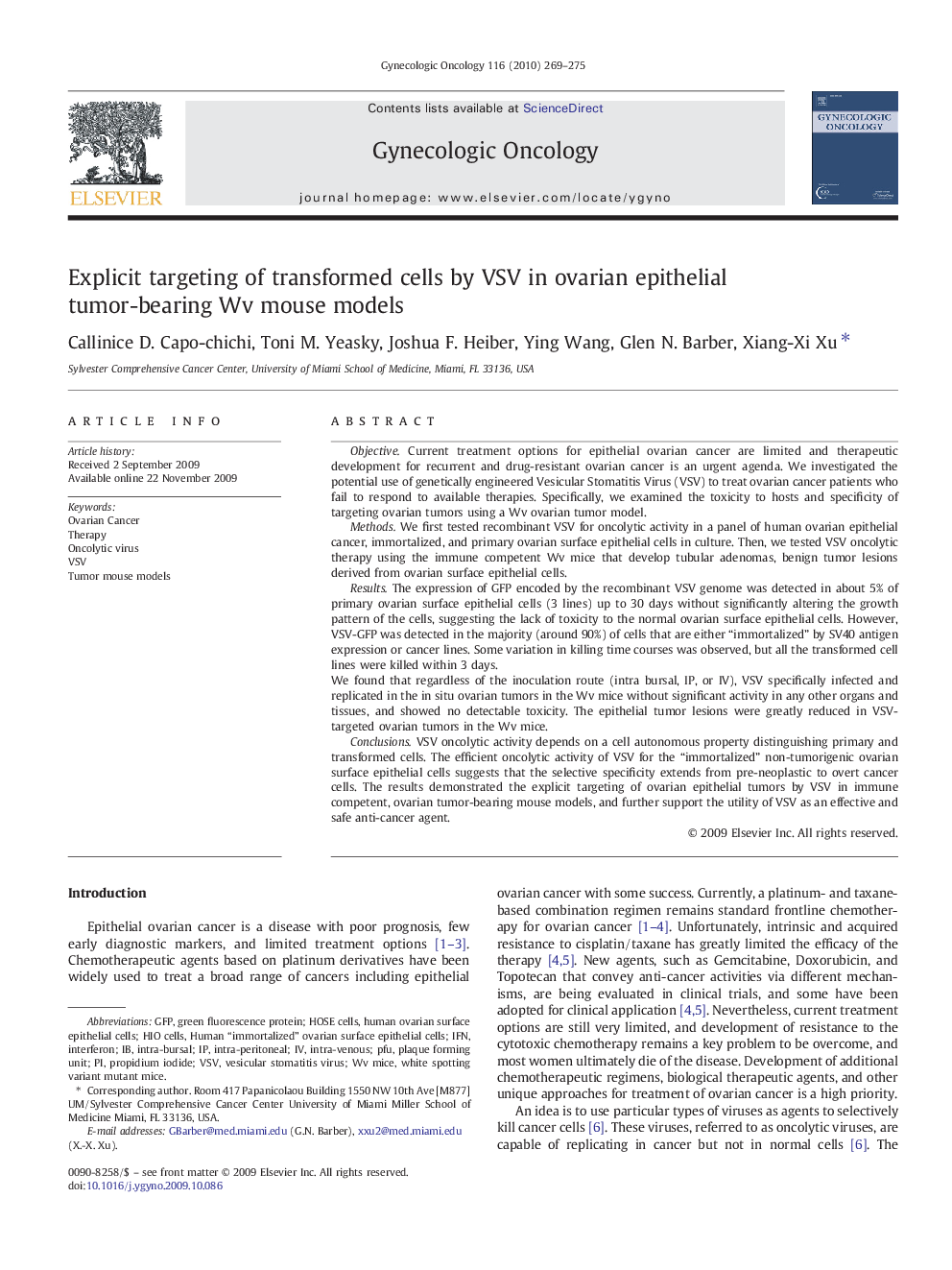| کد مقاله | کد نشریه | سال انتشار | مقاله انگلیسی | نسخه تمام متن |
|---|---|---|---|---|
| 3945821 | 1254292 | 2010 | 7 صفحه PDF | دانلود رایگان |

ObjectiveCurrent treatment options for epithelial ovarian cancer are limited and therapeutic development for recurrent and drug-resistant ovarian cancer is an urgent agenda. We investigated the potential use of genetically engineered Vesicular Stomatitis Virus (VSV) to treat ovarian cancer patients who fail to respond to available therapies. Specifically, we examined the toxicity to hosts and specificity of targeting ovarian tumors using a Wv ovarian tumor model.MethodsWe first tested recombinant VSV for oncolytic activity in a panel of human ovarian epithelial cancer, immortalized, and primary ovarian surface epithelial cells in culture. Then, we tested VSV oncolytic therapy using the immune competent Wv mice that develop tubular adenomas, benign tumor lesions derived from ovarian surface epithelial cells.ResultsThe expression of GFP encoded by the recombinant VSV genome was detected in about 5% of primary ovarian surface epithelial cells (3 lines) up to 30 days without significantly altering the growth pattern of the cells, suggesting the lack of toxicity to the normal ovarian surface epithelial cells. However, VSV-GFP was detected in the majority (around 90%) of cells that are either “immortalized” by SV40 antigen expression or cancer lines. Some variation in killing time courses was observed, but all the transformed cell lines were killed within 3 days.We found that regardless of the inoculation route (intra bursal, IP, or IV), VSV specifically infected and replicated in the in situ ovarian tumors in the Wv mice without significant activity in any other organs and tissues, and showed no detectable toxicity. The epithelial tumor lesions were greatly reduced in VSV-targeted ovarian tumors in the Wv mice.ConclusionsVSV oncolytic activity depends on a cell autonomous property distinguishing primary and transformed cells. The efficient oncolytic activity of VSV for the “immortalized” non-tumorigenic ovarian surface epithelial cells suggests that the selective specificity extends from pre-neoplastic to overt cancer cells. The results demonstrated the explicit targeting of ovarian epithelial tumors by VSV in immune competent, ovarian tumor-bearing mouse models, and further support the utility of VSV as an effective and safe anti-cancer agent.
Journal: Gynecologic Oncology - Volume 116, Issue 2, February 2010, Pages 269–275